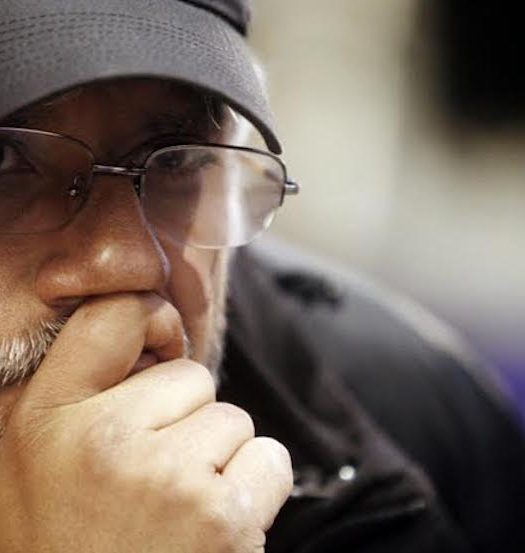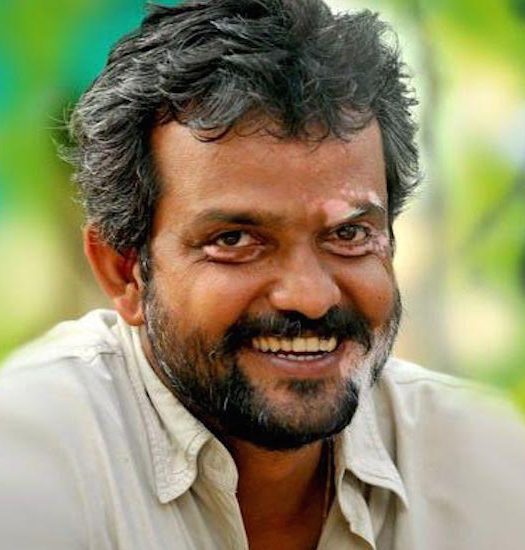Cast Chat – A Death in the Gunj
Konkana Sensharma’s directorial debut, A Death in the Gunj has been talk of the town since day one. Be it the fact that a fantastic actor like Konkana is donning the director’s hat, the intriguing story or its interesting ensemble cast, there’s much to look forward to.
The ensemble boasts of a unique mix of actors, from veterans like Tanuja and the late Om Puri to noted actors like Ranvir Shorey, Tillotama Shome, Kalki Koechlin, Gulshan Devaiah and the promising Vikrant Massey.
We caught up with Vikrant, Tillotama and Ranvir to know more about their characters and their experience of being part of this film.
Vikrant Massey

Vikrant Massey in a still from A Death in the Gunj
You’ve been part of films like Lootera and Dil Dhadakne Do. But A Death in the Gunj is a very different genre. How would you describe the experience of working on it?
It was a fantastic experience. It really doesn’t matter what genre the film falls under. I was really looking forward to working with this team. In fact, I told Konkana that I wanted to work with her irrespective of the story of the film. When I said yes (to be part of the film), I didn’t even know what the story was. I got the script after saying yes to the film and that is when I read it (the story) for the first time.
I have been on this film since day one. I got this film when Konkana and I were working on Lipstick Under My Burkha. Alankrita Shrivastava, the director of Lipstick…, recommended my name for the part. As people started getting associated with the project, I was really looking forward to working with them – Tanuja ji, Om ji, Gulshan, Kalki, Tillotama, Ranvir; it’s like a dream cast to be working with. We have some of the best talent, including technicians, working on this film and it has been a fantastic experience.
It has been my dream to play a protagonist too, I’ve waited for an opportunity like this
Tell us about your character in the film. Was it something that you, as a person, could relate to?
I honestly could resonate with the character, not in entirety, but there have been some incidents like these in my life as well, because they are such common incidents. Ageing and growing up is a universal process. The incidents that are shown in the film, the sort of character I play, it’s something that I have gone through and I’m sure that everybody has experienced or seen in their life. Either you have been bullied or you have bullied someone. So I’d gone through some of it, heard about such things and we also read about it almost everyday.
Also Read: An actor has to live what the character has lived through – Purab Kohli
How did Konkana help you get into the character of Shutu?
Konkana knows the script at the back of her hand. She’s such a fantastic writer and she has grown with the story. She’s been writing it for a very long time. So, she knew what she wanted from me. We also had a workshop by Atul Mongia.
When you have so many fine people coming together for a film, a lot of play an important part in building the character and taking it to a particular point. But yes, Konkana is the writer-director of the film, so I did spend a lot of time with her to understand the character. There were certain suggestions that I too made for the character.
This film has been made with so much passion

With Director Konkana Sensharma
Having played supporting roles, did playing the lead in this film come with an added responsibility?
Definitely, yes. This film is such a magical film for all of us, we made this film because we wanted to; we definitely want people to see it, but this film has been made with so much passion. This is my first film as the lead and it’s such a big responsibility because it is Konkana’s first film as a director. You really have to do justice to that; it has been her dream to make the film. And it has been my dream to play a protagonist too, I wouldn’t lie about it. I’ve waited for an opportunity like this, just like every other actor. It is also Abhishek (Chaubey) sir and Honey (Trehan) sir’s first production venture, so there are a lot of firsts involved and there is a lot of passion and support for each other.
When I said yes, I didn’t even know what the story of the film was
You have been doing unique films and roles, going forward, what kind of characters would you like to explore?
I am doing some very interesting stuff and am very happy with the work that I’ve been getting. I’m just looking at interesting scripts, not exactly in terms of something that has not been done before, more or less I would love to be part of any good script. At the end of it, an artist’s responsibility is it to depict the times we live in.

Tillotama Shome in a still from A Death in the Gunj
What is your criteria for choosing a film and role?
The criteria is the screenplay. The script is the hero! If the script engages me, then the second thing is what my character is. If I find something in my character that I’m afraid to do, which is outside my comfort zone, then I immediately say yes to it because that’s the only way one can push oneself and discover new things.
In our industry, there’s no way that you won’t be stereotyped
You’re working with Konkana again, this time as director and actor, how has the experience been?
Konkana is a dear friend. The pleasure of seeing such a dear friend make a film from when it was a story idea, which I’ve heard, was incredible. The story she’s been obsessed with, that’s had such an impact on her life since she was young, to hear various drafts of it, I witnessed the entire journey! It was quite unreal. To see my friend out there writing her first screenplay and draft after draft and then to be on set. I couldn’t have asked for more! I’m so proud.
Also Read: 10 short films with Bollywood star power
What is your character in this film like? Could you identify with her?
I play a character called Bonnie, which I was really happy to play. Because usually I get cast in intense roles which are extremely serious. When Koko (Konkana) gave me this role, I’ve never been so happy on a film set and laughed so much. It was such a light and lovely character to play.
I’m excited but also terrified. I know when I feel that, I have to say yes to that film

In a still from A Death in the Gunj
Since you’ve largely played intense roles, do you fear being stereotyped?
In our industry, there’s no way that you won’t be stereotyped. I do intend to fight it until my dying breath. I’m not going to go anywhere and Bollywood will just have to accept me. I’m going to keep working on myself.
If I find something in my character that I’m afraid to do, which is outside my comfort zone, then I immediately say yes to it
How have you grown as an actor from your first film Monsoon Wedding to date?
Monsoon Wedding was really the beginning of it all. Since then, one has had many ups and downs. If I’ve already done it before, there’s no chance of doing it again. I’m excited but also terrified. I know when I feel that, I have to say yes to that film. I think I got a great start from that film (Monsoon Wedding), that enabled me to not just play characters that are close to what I’m like. It has been an endeavor to never get comfortable!
Also Read: I have learned to enjoy the uncertainty of being an actor – Rasika Dugal

Ranvir Shorey in a still from A Death in the Gunj
What excited you to take up this film?
Apart from the fact that it’s written and directed by the mother of my child, it was a nice script, and had a good director, good DOP, good cast. What’s not to like about it? (Smiles)
I don’t feel that I have to relate to any character that I play
This being Konkana’s directorial debut, how would you describe her as a director?
I used to tell her that she has the seeds of a director in the way she takes photographs; she has a great eye. I’ve been telling her for a while even before she decided. Finally, she wrote the script and I saw it come out, evolve in front of my eyes. What I liked the best about Konkana as a director is that she had great clarity about the characters. This is an ensemble piece, there are 8 to 10 characters. She puts forth her suggestions and direction very politely. I think that’s great. If someone who’s supposed to be a task master can be polite, it’s a good thing.

Still from A Death in the Gunj
How important is it for you to relate to a character that you are playing?
I don’t feel that I have to relate to any character that I play. I think what an actor can try to do is take as much as the character from the script and the director, and lend as much of himself or herself to that part. I somewhere feel that every performance is partly the actor and partly the character. I don’t think we can ever have absolutes in that. I don’t think we should ever do something where you’re playing yourself or the other extreme isn’t possible, where you completely disappear and you’re only the character. That can’t exist. So, somewhere in between I guess.
What I liked the best about Konkana as a director is that she had great clarity about the characters
You’ve been part of several ensemble cast films, how is the experience of working in such a set up?
I love ensemble pieces, because the work load is controllable. When you’re playing a lead part, it’s relentless, you have to work all the time. In an ensemble piece, it’s nice because you get some time off, while the other people are doing their shot. In an ensemble like A Death in a Gunj, where all are friends, that makes things a lot more fun.
-Honey Sheth and Esha Verma



